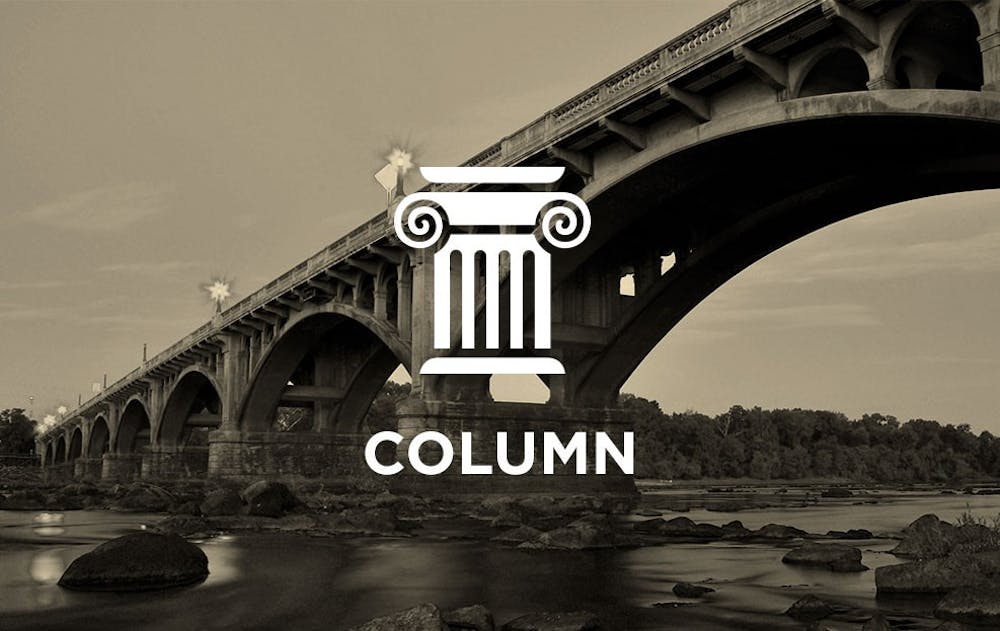Kavanaugh. Pipe bombs. Alt-right. Fake news. Presidential tweets. In this time of chaotic partisanship and overwhelming media coverage, alienation is inevitable. The political establishment acts without our interests in mind, making promises on which it can’t or won’t deliver.
It can seem like no matter how many representatives we call, how many rallies we attend or how many hot takes we retweet, our best efforts have somehow lost the power to effect change. With midterm elections on the horizon, you might be asking yourself: Does my vote matter?
And the simple answer is overwhelmingly yes, it does. It’s your opportunity to literally cast a ballot for how you want the future to look. But the better question is: Is voting enough? Of course it isn’t.
We have a civic responsibility to respond to injustice not only by demanding change at the highest levels of government, but by effecting change first in the hearts and minds of the people, that we might be empowered to push for justice from the ground up.
It is this radical attitude of grassroots empowerment that has made protest music so revolutionary. Some of the most successfully organized protest movements in American history have been set to music, leaving our country with a sweeping soundtrack that raises the voices of the oppressed, bears witness to injustice and, perhaps most importantly, calls the listener to action.
Just here in the South, a plethora of musical traditions armed musicians and their audiences against oppression.
From the voices of the enslaved came African-American spirituals, a genre of Christian worship music used by enslaved people to celebrate the joys of their belief system and mourn the sorrows of their oppression. This was enough that white slaveholders often prevented and punished this inherently radical kind of worship, condemning it as pagan or idolatrous.
What’s more, many spirituals like “Go Down, Moses,” held coded narratives about, and instructions for, escaping to freedom, a type of memorable oral record for a largely illiterate population.
The Civil Rights movement saw the use of more explicit songs of protest by and for the African-American community, employing culturally unique and significant forms of music like jazz, blues and gospel to protest the inhumane treatment of blacks living in segregated America. Examples include Billie Holiday’s haunting "Strange Fruit," which bore witness to the horrors of lynching and would eventually be named the song of the century by Time magazine to the anthem "We Shall Overcome."
In fact, this song is exemplary of the enduring, folkloric nature of American songs of protest. They are inherited. As they change hands, their meanings are adapted to the unique purposes of the time. "We Shall Overcome" was an universally known anthem of the Civil Rights movement, heard at the seminal 1963 March on Washington, where it was performed by folk icon Joan Baez and sung in streets by protesters.
It was heard again at the Women’s March on Washington in January of last year. While the song was copyrighted by mid century folk revival icon Pete Seeger, it actually has its origins right here in the South.
The song derives from an early gospel hymn, but as it exists now probably has its roots in South Carolina. In 1946, Charleston tobacco workers on strike sang the song in solidarity with worker Lucille Simmons adapting the hymn from its original format, which used “I” to refer to a collective “We,” transforming it from a solely spiritual narrative to one of collective empowerment.
This is the magic of protest music. It’s adaptable. It’s empowering. Most importantly, though, it’s by and for the people. In the South, a lot of protest music has been tied to labor movements. This is no coincidence; historically, the working poor and oppressed have had restricted access to the traditional forms of education required to take part in the highly literate, elite discourse of establishment politics. So by discarding traditional forms of political elitism in favor of song, music can put the power back in the hands of the people.
In this way, music has the ability to become a sort of universal language of revolution. Protest music has the power to convey higher level sociopolitical complaints, even instructions for rebellion, in a cultural transmission that is easily accessible to the working class. More than any campaign speech or think piece, it invites everyone to understand the issues that affect them and to speak out.
So, in the spirit of American protest music, stand up for your rights and those of your peers. Understand the stances of your local candidates. When Nov. 6 rolls around, turn up at the polls and cast your vote. But don’t stop there. Organize. Rally. Act. And, if all else fails, sing.
"Vote With Your Radio: Political Songs Then and Now"
Check out thedailygamecock on Spotify to hear the full playlist.
Go Down Moses - Louis Armstrong (feat. The All Stars and Sy Oliver Choir)
Strange Fruit - Billie Holiday
We Shall Overcome - Joan Baez
Tear the Fascists Down -Woody Guthrie
The Revolution Will Not Be Televised - Gil Scott-Heron
Freedom Is Free - Chicano Batman
Know Your Rights - The Clash
This is America - Childish Gambino
I Hate the Capitalist System - Barbara Dane
Solidarity Forever - Pete Seeger
Pa’lante - Hurray For The Riff Raff
Never Cross a Picket Line - Billy Bragg
You are the Problem Here - First Aid Kit
Danny Nedelko - IDLES
Mississippi Goddam - Nina Simone
Sixteen Tons - Johnny Cash
Bored in the USA - Father John Misty
The Times They Are A-Changin’ - Bob Dylan
Bread and Roses - Judy Collins
Alright - Kendrick Lamar

